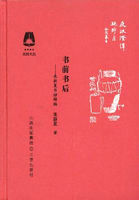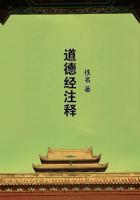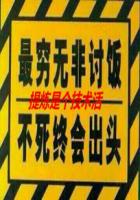The Italians, like the Greeks, were members of small communities. Every man was deeply interested in the welfare of the society to which he belonged, a partaker in its wealth and its poverty, in its glory and its shame.
In the age of Machiavelli this was peculiarly the case. Public events had produced an immense sum of misery to private citizens. The Northern invaders had brought want to their boards, infamy to their beds, fire to their roofs, and the knife to their throats. It was natural that a man who lived in times like these should overrate the importance of those measures by which a nation is rendered formidable to its neighbors, and undervalue those which make it prosperous within itself.
Nothing is more remarkable in the political treatises of Machiavelli than the fairness of mind which they indicate. It appears where the author is in the wrong, almost as strongly as where he is in the right. He never advances a false opinion because it is new or splendid, because he can clothe it in a happy phrase, or defend it by an ingenious sophism. His errors are at once explained by a reference to the circumstances in which he was placed.
They evidently were not sought out: they lay in his way, and could scarcely be avoided. Such mistakes must necessarily be committed by early speculators in every science.
The political works of Machiavelli derive a peculiar interest from the mournful earnestness which he manifests whenever he touches on topics connected with the calamities of his native land. It is difficult to conceive any situation more painful that of a great man, condemned to watch the lingering agony of an exhausted country, to tend it during the alternate fits of stupefaction and raving which precede its dissolution, and to see the symptoms of vitality disappear one by one, till nothing is left but coldness, darkness, and corruption. To this joyless and thankless duty was Machiavelli called.
In the energetic language of the prophet, he was "mad for the sight of his eyes which he saw" - disunion in the Council, effeminacy in the camp, liberty extinguished, commerce decaying, national honor sullied, an enlightened and flourishing people given over to the ferocity of ignorant savages. Though his opinions had not escaped the contagion of that political immorality which was common among his countrymen, his natural disposition seems to have been rather stern and impetuous than pliant and artful. When the misery and degradation of Florence, and the foul outrage which he had himself sustained, recur to his mind, the smooth craft of his profession and his nation is exchanged for the honest bitterness of scorn and anger. He speaks like one sick of the calamitous times and abject people among whom his lot is cast. He pines for the strength and glory of ancient Rome, for the fasces of Brutus and the sword of Scipio, the gravity of the curule chair, and the bloody pomp of the triumphal sacrifice. He seems to be transported back to the days when 800,000 Italian warriors sprung to arms at the rumor of a Gallic invasion.
He breathes all the spirit of those intrepid and haughty Senators who forgot the dearest ties of nature in the claims of public duty, who looked with disdain on the elephants and on the gold of Pyrrhus, and listened with unaltered composure to the tremendous tidings of Cannae. Like an ancient temple deformed by the barbarous architecture of a later age, his character acquires an interest from the very circumstances which debase it. The original proportions are rendered more striking by the contrast which they present to the mean and incongruous additions.
The influence of the sentiments which we have described was not apparent in his writings alone. His enthusiasm, barred from the career which it would have selected for itself, seems to have found a vent in desperate levity.
He enjoyed a vindictive pleasure in outraging the opinions of a society which he despised.
He became careless of the decencies which were expected from a man so highly distinguished in the literary and political world. The sarcastic bitterness of his conversation disgusted those who were more inclined to accuse his licentiousness than their own degeneracy, and who were unable to conceive the strength of those emotions which are concealed by the jests of the wretched, and by the follies of the wise.















